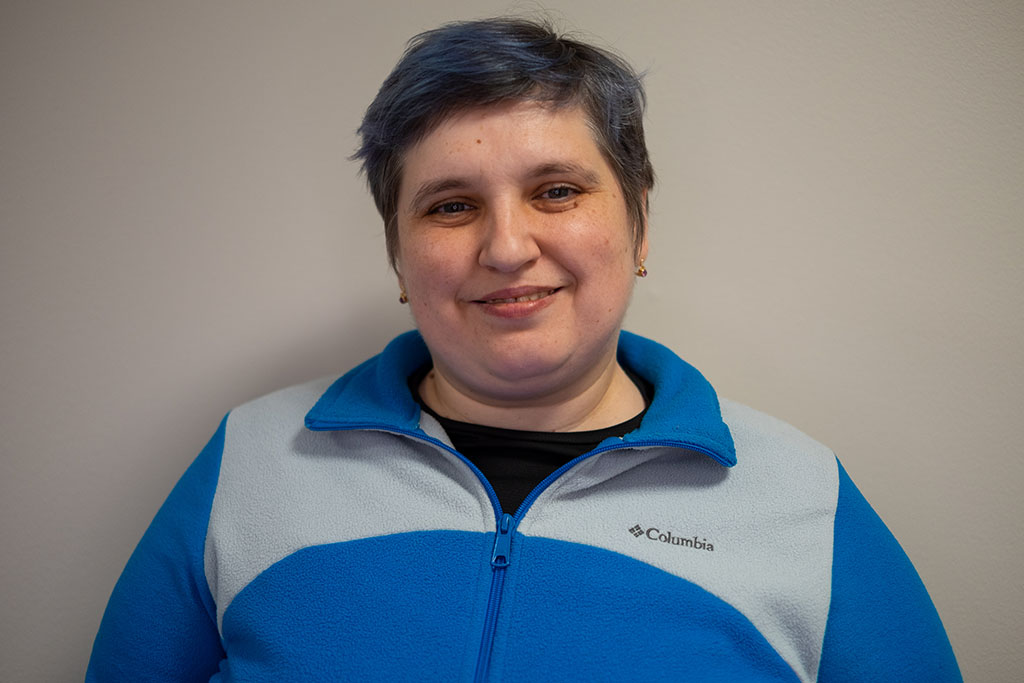Rebuilding lives in Kherson: “We want to create safe spaces”
Oksana Onilova and her colleagues were forced to evacuate when Russian forces attacked and occupied their city Kherson. By switching to working remotely, they were still able to support the women and LGBTQI community who stayed behind.

The feminist, LGBTQI-inclusive organisation Insha in Kherson was directly affected by Russia’s large-scale invasion of Ukraine on February 24th, 2022. When the city was under attack by Russian forces, the majority of the organisation had to evacuate. In November 2022, Kherson was finally liberated, but the people in the city are still in dire need of humanitarian support. Insha is now working to support women and the LGBTQI community affected.
The organisation has been working with gender equality and LGBTQI inclusion in the region since 2015. Activist Oksana Onilova has been with Insha from the start and oversees the organisation’s financial management. She evacuated in the beginning of the invasion and now lives abroad.
“Our office in Kherson has been completely destroyed during the occupation. We used to have security cameras in the office and saw when Russian soldiers would enter the office to steal and destroy it. Fortunately, we suspected the invasion beforehand and made sure to remove all the personal data we had of the LGBTQI community members to protect them,” says Oksana.
Had to change their focus
Insha continued to remain in contact with those still in Kherson to provide assistance during evacuation, as well as direct financial support, psychosocial support and consultations on security issues. They also continued working on raising awareness about the needs and situation for LGBTQI persons living in cities occupied by Russia.
“We couldn’t reach our goals for the grants we had received before the war. Thankfully, our donors understood our circumstances and let us keep the funds to use them for humanitarian aid instead and we were able to help around 1000 people,” Oksana says.
The organisation worked with three different types of aid. They helped people evacuate and pay the drivers who had started asking for enormous sums to get people out of the city. They also provided people with food packages and helped those still inside the city with financial support to be able to survive.
They’ve also started gathering information about sexual and gender-based crimes committed during the occupation.
“Now we’re trying to shift our focus to helping people who have stayed in Kherson all this time, as well as helping those now returning to the city. We’re meeting people who have been in captivity and were tortured by Russian soldiers, who now are suffering from mental health issues. We want to create safe spaces and provide psychological support for all of them.”
Raising awareness for the LGBTQI community
Oksana and her colleagues have started looking ahead, to see what they can do to raise awareness about the needs and the situations for the LGBTQI communities in different cities under Russian occupation.
“In the future we’re planning an art project that will show how citizens of Kherson weren’t just waiting to be liberated, they also worked for that liberation. They’re not just victims or survivors, they are heroes,” Oksana says.
Kvinna till Kvinna has supported women’s rights in Ukraine since 2014. When the the full-scale invasion by Russia started in 2022, Kvinna till Kvinna activated our emergency fund to provide urgent support to women’s rights organisations and individual women human rights defenders in and from Ukraine in their work to help women exposed to violence, displaced women and families in need of immediate support. Learn more about our work in Ukraine »